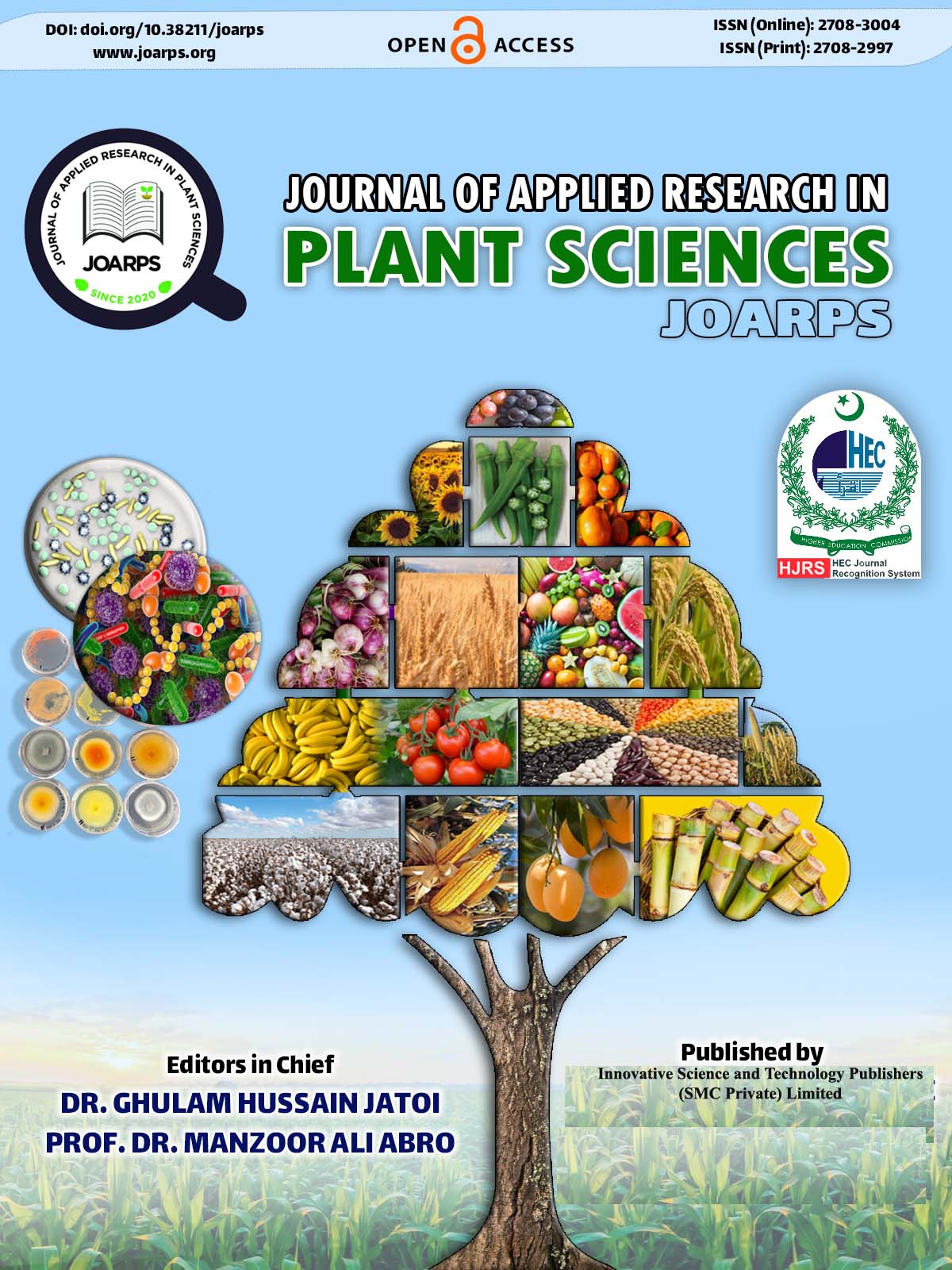Azolla as Waste Decomposer and Bio-fertilizer: A Review
DOI:
https://doi.org/10.38211/joarps.2021.2.1.14Keywords:
Aquatic fern, Nitrogen fixation, Organic agriculture, Organic mulch, Green manure, Phytoremediation, Bio filtration of toxic elementsAbstract
In modern-day agriculture, we are well aware of the utilization of artificial fertilizers in the soil to supply major soil nutrients for plant growth and development. The most common used nutrients in agroecosystem are nitrogen (N), phosphorus (P), potassium (K), and sulfur (S). These fertilizers cause an increase in crop production, but the excess use of these fertilizers has several health hazards for the plants and animals feeding on them. Presently the consumer's preference has been shifted from synthetic fertilizer-based food to organic food. This paper aims to review the results of the research work done in the past few decays on the environment detoxification and beneficial effects of Azolla (aquatic fern) on plants and soil health. Hopefully, it will help the collaborative research on this “green gold” in the future. Azolla fixes the free-living atmospheric N as they have symbiotic Cyanobacterium Anabaena Azolla. Azolla adds organic matter and provides natural mulch to the soil because of these benefits is known as bio-fertilizer. Azolla remediates industrial and sewage water by accumulating heavy metals in their body and plays an active role in the reclamation of salt-affected soil by accumulating heavy metals and salts and by increasing the soil organic matter.
Downloads
Downloads
Published
How to Cite
Issue
Section
License
Copyright (c) 2020 Journal of Applied Research in Plant Sciences (JOARPS)

This work is licensed under a Creative Commons Attribution 4.0 International License.






